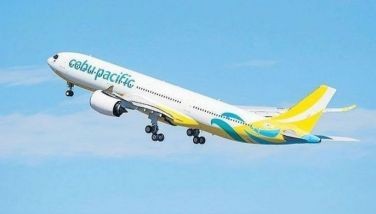Food processors seek greater access to low-priced sugar
February 20, 2005 | 12:00am
Food processors are asking the government to allocate sugar for the sector at competitive prices to help them cope with escalating production costs.
"Sugar is a major raw material for most food processors, accounting for as much as 40 percent of production cost, but prices have been rising along with other production inputs," said Edward David, director of the Philippine Food Processors and Exporters Organization, Inc. (Philfoodex).
Philfoodex members, numbering more than 300, range from small to medium scale food processors in the country.
"What we are basically asking is for the government to make local sugar prices at par with Asian countries such as Thailand and Vietnam whose prices are very competitive. In contrast, local pricing for sugar is largely eschewed," said David.
Food processors are claiming that local sugar prices are 50 percent higher than say, sugar in Thailand and Vietnam which currently average about P13 to P14 per kilo compared to the local retail price of P26 per kilo.
Sugar output for crop year 2004 went up 8.2 percent to 2.339 million metric tons (MT) over the previous period’s 2.162 million MT production with about 89.5 percent of it classified as "B" or domestic sugar for local consumption. Six percent of the production was classified as "A" sugar and was allocated for export to the United States, four percent as "D" for the world sugar market. Around 59,910 MT of "D" sugar has either been exported or awaiting shipment to the world market.
On the other hand, only half a percentage was classified as "B-1" for the use of food processors and exporters.
David said Philfoodex wants its allocation increased to 1-1.5 percent of local production and for the process of procurement to be simplified.
"There is an existing sugar allocation for domestic users but food processors still have to go through the eye of the needle to acquire it. It would have been better if an allocation was given to the sector in bulk and we will take care of allocating the commodity according to the individual requirements or demands of our members. Giving it to us in bulk will make it cheaper for our sector and increase our competitiveness," said David.
He claimed that imported sugar is currently sold at P1,000 per 50-kilogram bag while local sugar is priced at P1,260 per 50-kilogram bag.
"Sugar is a major raw material for most food processors, accounting for as much as 40 percent of production cost, but prices have been rising along with other production inputs," said Edward David, director of the Philippine Food Processors and Exporters Organization, Inc. (Philfoodex).
Philfoodex members, numbering more than 300, range from small to medium scale food processors in the country.
"What we are basically asking is for the government to make local sugar prices at par with Asian countries such as Thailand and Vietnam whose prices are very competitive. In contrast, local pricing for sugar is largely eschewed," said David.
Food processors are claiming that local sugar prices are 50 percent higher than say, sugar in Thailand and Vietnam which currently average about P13 to P14 per kilo compared to the local retail price of P26 per kilo.
Sugar output for crop year 2004 went up 8.2 percent to 2.339 million metric tons (MT) over the previous period’s 2.162 million MT production with about 89.5 percent of it classified as "B" or domestic sugar for local consumption. Six percent of the production was classified as "A" sugar and was allocated for export to the United States, four percent as "D" for the world sugar market. Around 59,910 MT of "D" sugar has either been exported or awaiting shipment to the world market.
On the other hand, only half a percentage was classified as "B-1" for the use of food processors and exporters.
David said Philfoodex wants its allocation increased to 1-1.5 percent of local production and for the process of procurement to be simplified.
"There is an existing sugar allocation for domestic users but food processors still have to go through the eye of the needle to acquire it. It would have been better if an allocation was given to the sector in bulk and we will take care of allocating the commodity according to the individual requirements or demands of our members. Giving it to us in bulk will make it cheaper for our sector and increase our competitiveness," said David.
He claimed that imported sugar is currently sold at P1,000 per 50-kilogram bag while local sugar is priced at P1,260 per 50-kilogram bag.
BrandSpace Articles
<
>
- Latest
- Trending
Trending
Latest
Trending
Latest
Recommended





























